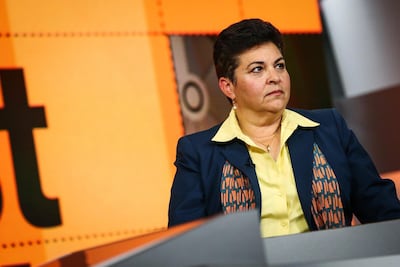Tesla chief executive Elon Musk's contemplated $72 billion take-private deal is presenting investments bankers with a dilemma: heed concerns about how feasible it is or risk missing out on what could be this year's biggest and most high-profile acquisition.
Mr Musk did not just catch investors and analysts off guard earlier this month by announcing on Twitter he was considering taking the US electric car maker private. He also sent shockwaves throughout the investment banking world, which reacted to the news with both excitement and bewilderment.
This is because no company of Tesla's size has ever been taken private by financial investors as Mr Musk has suggested, as opposed to being acquired by a bigger company. Moreover, the standard method of doing so, saddling the company with debt in a so-called leveraged buyout, is not an option for Tesla given that is already servicing a debt mountain of some $11bn and is not making any money. It reported an operating loss in 2017 of $1.6bn.
Debate over the deal's feasibility has polarised bankers. During one conference call at an investment bank last week, discussion on whether the deal represented a major opportunity or a fools' errand degenerated into a shouting match, according to one of the bankers, who requested anonymity.
"Given the size of a deal, the company's debt capacity and cash flow, bankers seem similarly chary about this deal happening anytime soon," said Stefan Selig, a former top Bank of America banker who is the founder of financial and strategic advisory firm BridgePark Advisors, which is not involved in the deal.
Bankers aspiring to advise on the deal are courting Mr Musk and Tesla's special board committee that will independently consider the merits of Musk's expected offer.
Working for Mr Musk could also come with reputational risk, given that the US Securities and Exchange Commission is investigating the factual accuracy of his assertion on Twitter that funding for the deal was secured, sources have said.
However, many bankers said this would not be a deterrent given the magnitude of the potential deal.
"That's likely not enough to color a banker's view on whether or not there is an opportunity,” said Ted Smith, a co-founder and partner of Union Square Advisors, a technology boutique investment bank. Union Square is not trying to win a role in the Tesla deal.
_______________
Read more:
Saudi Arabia's PIF in talks to invest $1bn in Tesla rival Lucid
In face of criticism, Musk refuses to change work style
_______________
Mr Musk, who owns about a fifth of Tesla, said in a blog post last week the effective size of the deal would be much smaller than the $72 billion equity valuation of his offer, because, according to his estimate, two-thirds of the company's shareholders would choose the option he will offer them of "rolling" their stakes and continue to be investors in a private company, rather than cash out.
He also said that Saudi Arabia's PIF, which became a Tesla shareholder earlier this year with a stake of just under 5 per cent, could help him fund the cash portion of the deal, through sources close to the sovereign wealth fund have played down that prospect.
There is no precedent for major institutional shareholders and thousands of mom-and-pop investors rolling their stakes in a transaction of this size, and legal experts have warned that carrying this out would require navigating a regulatory minefield.
If the deal was structured like a leveraged buyout, advisers to Tesla could earn $90 million to $120m in fees, while advisers to Mr Musk's investor group would earn $30m to $50m, and debt financing fees could reach $500m, according to estimates from financial advisory firm Freeman & Co.
However, if the Tesla deal is done with equity partners and little debt, as Mr Musk envisions, the fees would be substantially lower, according to Freeman, making it more of a trophy rather than a lucrative assignment for bankers.
Last week, bankers at Goldman Sachs decided to take the plunge by offering to advise Mr Musk. Goldman bankers have had close ties with him for more than a decade, leading Tesla's initial public offering in 2010. Goldman Sachs, whose managing director is Alejandro Vollbrechthausen, declined to comment.
Morgan Stanley equity research analysts said on Tuesday they had ceased coverage of Tesla, and sources confirmed that the bank was also close to being hired by Mr Musk.

Tesla has declined to comment on the matter.
This is despite Morgan Stanley currently advising aspiring Tesla rival Lucid Motors on attracting a potential investment from PIF, sources told Reuters. Morgan Stanley has been a top financier of Tesla over the years, making it a prime candidate to arrange any debt financing needed, the sources said.
Morgan Stanley declined to comment.
Still up for grabs is the financial advisory mandate to be awarded by Tesla's special committee. Evercore Partners, which advised Tesla two years ago in its $2.6bn acquisition of renewable energy company SolarCity and is also advising PIF on its potential investment in Lucid Motors, is one of the banks vying to advise Tesla's special committee, according to the sources. Evercore declined to comment.
Other investment banks vying for the Teslaspecial committee financial advisory role include Centerview Partners, Lazard, Moelis & Co, and Perella Weinberg Partners, according to the sources. The banks did not respond to requests for comment.

